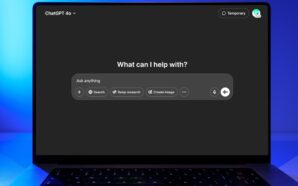
Is This a Good Idea? Many Americans Don’t Think So
Microsoft’s AI is officially heading to the U.S. Department of Defense and not everyone’s clapping.
Starting this summer, the Pentagon will get access to a military-ready version of Microsoft 365 Copilot. It’s the same tool that automates emails, summarizes documents, and helps write reports for everyday users, now fine-tuned for America’s most secure department. Sounds like progress, right?
Well, not so fast.
Big Tech and the Military? That’s a Risky Combo
Let’s be honest. Handing over AI tools to the military opens a can of worms. Who’s going to oversee what these tools are used for? Can we trust a private tech giant like Microsoft to maintain full transparency when its AI is helping generate intelligence reports, interpret sensitive data, or even aid decision-making?
It’s not about whether the tech works. It’s about who controls it and how easily it can be misused without anyone knowing.
What About Data Privacy?
This AI tool is running on Microsoft’s ultra-secure government cloud, but let’s not forget. Clouds have been breached before. And once AI starts drafting internal memos or processing surveillance data, the line between efficiency and overreach gets blurry real fast.
Do we know how much of this AI’s output will be checked? Will military leaders rely too heavily on it? What happens if there’s a bias in the model that goes unchecked?
Is This the Start of Automated Warfare?
It might sound dramatic, but this is the first step toward normalizing AI in military strategy. Today, it’s Copilot in Word and Excel. Tomorrow, it could be autonomous analysis in combat zones.
When tech companies start shaping military operations, there needs to be a public conversation. Are we okay with private corporations developing tools that directly influence national security decisions?
Final Thought
This move might look like a smart upgrade for productivity, but it raises big questions. We’re watching a quiet shift where AI moves from the boardroom to the battlefield and most Americans don’t even know it’s happening. Maybe it’s time we start paying attention.
-
Credit: Shutterstock Dubai’s dining scene has never been afraid of bold ideas—but the city’s newest culinary experiment might just...
-
Credit: Shutterstock Disney Brings Olaf to Life with AI-Powered Snowman Robot Disney has accomplished the unthinkable by transforming one...
-
Credit: Shutterstock Thirty years ago, before most people had ever heard the term “cybersecurity,” a Japanese anime depicted a...
-
Credit: Shutterstock Today, Apple announced the release of Digital ID, a new and safe method for American iPhone and...
-
Credit: Shutterstock Artificial intelligence (AI) is already a part of our everyday lives and is no longer a sci-fi...
-
Credit: Shutterstock In a digital age where even our doorbells are online, today felt like the internet collectively hit...
-
Credit: Shutterstock Spotify is making it even easier (and more fun) to get the perfect playlist going. The streaming...
-
Credit: Shutterstock When Matt and Maria Raine lost their 16-year-old son Adam to suicide this past April, they were...
-
Credit: Shutterstock At its Made by Google 2025 event, Google pulled back the curtain on its latest foldable device,...
-
Credit: Shutterstock Paralyzed Woman Stuns the World Using Elon Musk’s Neuralink Chip In an awe-inspiring moment that blends science...
-
Credit: Shutterstock What’s on your mind today? Chances are, you’re not alone if you’ve turned to ChatGPT for answers....
-
Credit: Unsplash Japan Is Living In the Future Japan just broke the internet speed record by reaching 1.02 petabits...




















